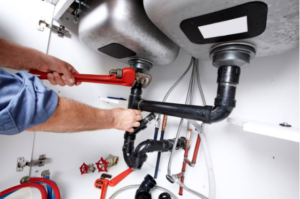
Plumbing systems are an essential part of any home or business, ensuring smooth water flow, effective drainage, and overall comfort. However, plumbing issues can arise at any time, ranging from minor leaks to significant pipe bursts. Understanding the scope of plumbing services and how to handle emergency plumbing situations is crucial for maintaining your property’s functionality and avoiding costly repairs. This guide will cover both routine maintenance and how to manage plumbing emergencies.
Understanding Plumbing Services
Plumbing services encompass a wide range of tasks aimed at maintaining, repairing, and installing the plumbing systems in homes and businesses. From fixing a leaking faucet to replacing water heaters and sewage systems, plumbing services are integral to keeping everything in good working order.
Professional plumbing services typically include:
Routine Inspections and Maintenance: Regular check-ups to ensure that the plumbing system is functioning correctly, preventing future issues.
Repairs: Fixing leaks, clogs, and broken pipes.
Installation: Installing new plumbing fixtures, such as faucets, sinks, showers, and water heaters.
Upgrades: Replacing outdated or inefficient plumbing systems to improve performance and water conservation.
Emergency Plumbing: Providing immediate solutions for critical plumbing issues that cannot wait.
Hiring professional plumbers ensures that these tasks are performed with precision, saving you time and preventing future headaches.
Routine Plumbing Maintenance: Preventative Care for Longevity
Routine maintenance is one of the best ways to extend the lifespan of your plumbing system and avoid costly emergency plumbing calls. Regular maintenance can catch issues early before they become major problems. Here are some tips for routine plumbing maintenance:
Check for Leaks: Regularly inspect your pipes, faucets, and water heater for any signs of leaks. Even small leaks can lead to significant water damage over time.
Clean Drain Lines: Keep your drains clear of debris to prevent clogs. You can use a drain cleaner or hire a professional to perform routine cleaning.
Test Water Pressure: Low or high water pressure can indicate an underlying plumbing problem. Have a plumber check the pressure regularly to ensure it’s within a safe range.
Inspect Water Heater: Flushing your water heater annually removes sediment build-up and keeps it functioning efficiently.
A proactive approach to plumbing maintenance can prevent many issues from escalating into emergencies.
Emergency Plumbing: Quick Action When It Matters Most
Plumbing emergencies can occur suddenly and without warning. Whether it’s a burst pipe in the middle of the night or a clogged drain that disrupts your day, having a reliable emergency plumbing service on hand can save you from extensive damage and expensive repairs.
Common emergency plumbing situations include:
Burst Pipes: Frozen or damaged pipes can burst, causing water to flood your home or business.
Clogged Drains: Severe blockages in the sewer line or drains can cause water backup, affecting multiple areas.
Water Heater Failure: A broken water heater can leave you without hot water, which is especially problematic in colder months.
Sewage Backup: Backups can cause sewage to flow into your home, which is not only unpleasant but also hazardous to health.
In an emergency, it’s crucial to act quickly. Here are steps to take until a professional arrives:
Turn Off the Water: For leaks or burst pipes, immediately shut off your home’s main water supply to minimize damage.
Stop the Flow of Electricity: If water is near electrical outlets or appliances, cut off the power supply to avoid electric shock hazards.
Contain the Water: Use towels or buckets to control water flow until the plumber arrives.
Contact a Professional: Call an emergency plumbing service that operates 24/7 to resolve the issue quickly.
Plumbing emergencies require quick thinking and professional intervention. Knowing what steps to take can reduce the damage and facilitate faster repairs.
Choosing the Right Plumbing Service
When it comes to plumbing services, it’s important to hire a reliable and experienced plumber. Here are some tips for choosing the right one:
Licensing and Insurance: Ensure the plumbing service is licensed and insured, protecting you from liability in case of accidents.
Availability: Look for a plumber that offers 24/7 service, especially if you’re dealing with an emergency.
Reputation: Check reviews and ask for recommendations to find a plumber known for high-quality service and professionalism.
Pricing: Request estimates upfront and ensure that the plumbing company provides transparent pricing, especially in emergency situations.
Choosing the right plumbing service ensures that your home or business remains safe, functional, and well-maintained.
Conclusion
Properly maintaining your plumbing system through regular inspections and addressing issues promptly can save you from costly repairs and plumbing emergencies. Knowing how to handle common emergency plumbing situations can minimize damage until a professional arrives. By relying on professional plumbing services, you ensure the long-term health of your plumbing system, keeping your home or business running smoothly.
